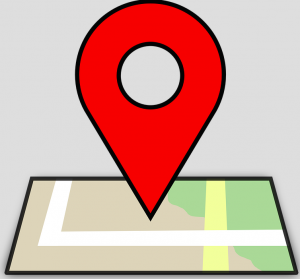Since the last face to face I’ve been thinking. Before the MaRs session, I felt I really needed an injection of inspiration and energy and, as always, Cohort delivered. There were so many wonderful ideas, great pieces of advice and real-life, practical and immediately applicable suggestions and ideas. I’ve been processing and planning ever since.
My action plan is still the same at heart – to develop a learning community where deep thinking and collaboration allow for conceptual connections in chemistry.
1) Where I am now
I’ve experimented with essential questions and visible learning. The outcomes of this were successful as measured through student surveys that focused on how the students felt their time spent in class benefitted and changed their approach to learning. I want to revisit this to make it more deliberate and build routines that enable my students to reflect on their learning, develop deeper understandings and encourage wonder/questioning.
2) Where I’m going
Essential questions – I love how this focussed an entire unit of content and instigated a culture of questioning in the classroom. One obstacle I am looking to overcome is finding a display area in the classroom where a learning wall can keep track of our essential questions as well as student reflections around them. After discussion with @msaragona, I am going to use science fair display boards that can move classroom with me.
Headlines – As part of the learning wall, I intend to use ‘headlines’ written by the students so that we can see the ‘story’ of a unit develop. While this is not particularly techy, I want the students to have a concrete document of their learning journey that grows with them and can be seen in the classroom at all times (even when I’m using the SmartBoard for other applications).
Flipped classroom – To allow more time for connections, conversations and project-based application of learning, I’m going to try a series of flipped lesson using EdPuzzle. The first lesson I intend to allow the students time to watch the video and interact with EdPuzzle in class before embarking on group-based problems solving and a plenary. After an initial ‘trial’ I will do two other flipped lessons in the unit, one of which will be a lab flipped lesson where students learn relevant lab techniques and theories before completing a practical experiment the next class.
I think these steps will continue to take me toward a classroom with increased collaboration, student talk/think-time and reflective and thoughtful learners. By connecting ideas from flipped lessons (connection between homework, classwork and real-world application) and connecting ideas from one lesson to the next (learning wall) to build ‘big picture’ understandings, I hope to structure practiced routines and thinking strategies to help the students deepen their thinking and learning.
Ok – enough planning now. Time for action. Stay tuned.

Hi Heather,
It sounds like you’ve truly managed to engage your students. I’m trying essential questions as well. It’s taking me some time to wrap my head around the idea and I certainly don’t profess to have this down pat yet. I was curious about what your students said about how this changed their own approach. Could you elaborate? Or perhaps you’ve discussed this in another blog post?
Thanks!
Vivienne (@mmekraus)
Hi Vivienne,
I did a student survey at the end of a unit where I did not use essential questions, and then the same survey again after a unit centered around two essential questions. The first question was “how do you feel you spent most of your class time?” For the first unit, many answers included ‘listening, writing, reading notes, practicing problems’ but the unit using essential questions got more responses such as ‘thinking, learning, making inferences.’ I’m trying this again in the next unit I will be teaching to continue experimenting with making the thinking more visible and reflective every lesson. This is where I feel short in the last unit, mostly due to time pressures. I plan to make the last 5 minutes of class routinely about reflecting on learning, discussing challenges and making connections by having the students write Tweets or Post-It notes to summarize ideas and build a ‘story’ of their learning progress.
I love how you are using surveys to collect student feedback on things you are trying in your classroom – what a powerful tool for empathy! The use of headlines to create a story is also a powerful tool.
How did the EdPuzzle experiment go? Are students engaging in material? Is it allowing you to free up more time for digging into those essential questions in class?
If you’re interested in some good reading on Essential Questions, and Understanding by Design, check out this article: https://www.diigo.com/item/pdf/1gxz1/6hnd
Looking forward to seeing you on the 22nd!
Les